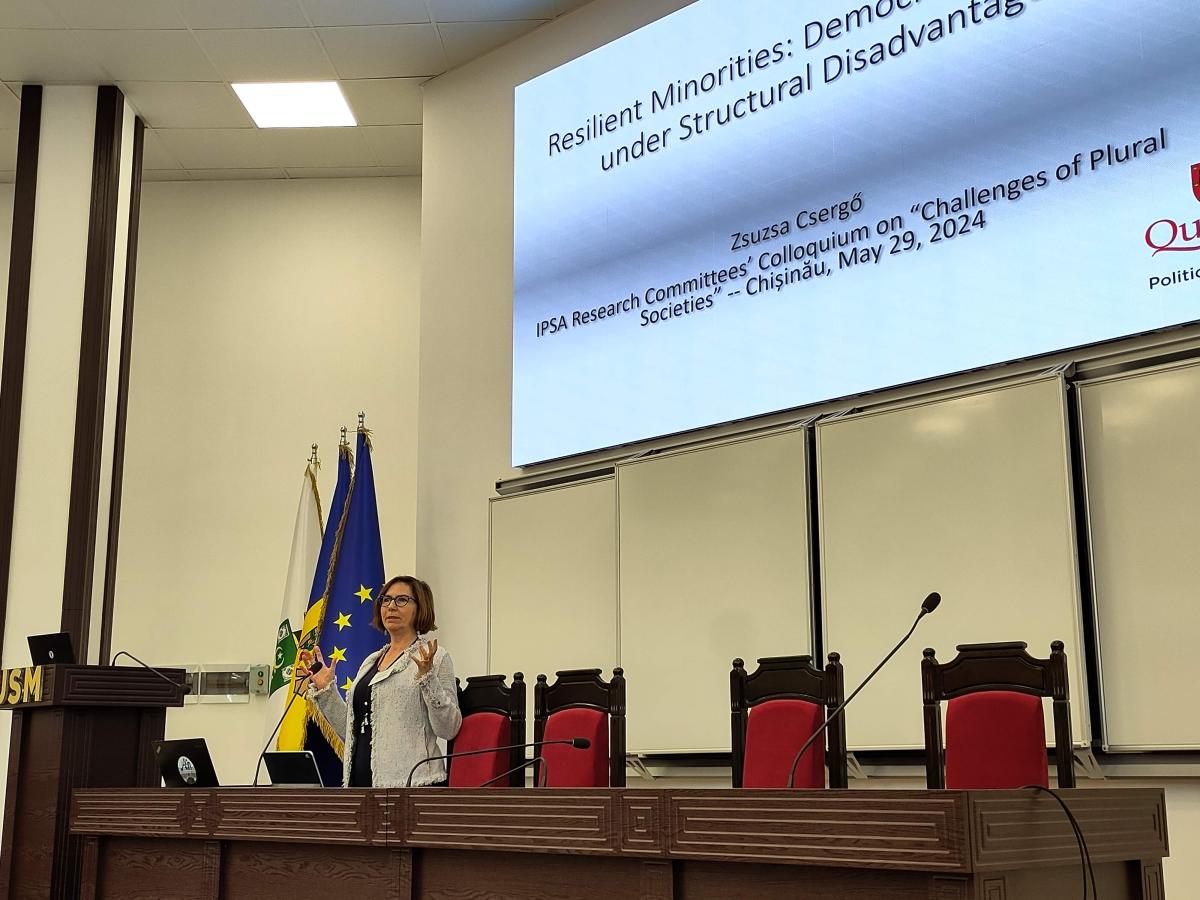

IPSA Research Committees Colloquium: Challenges of Plural Societies
Publication date: Thu, 20 Jun 2024
The IPSA Research Committee (RC14) on Politics and Ethnicity presented the latest edition of its annual colloquium on the theme Challenges of Plural Societies in Chișinău, Moldova, from 28-31 May 2024. This event was held in collaboration with RC23-Elections, Citizens and Parties, RC28-Comparative Federalism and Multilevel Governance, RC50-The Politics of Language, RC53-Indigenous Politics and the ECPR Standing Group on Identity.
Building on the experience of previous events in Nicosia (2017), Sarajevo (2019) and Belfast (2023), the colloquium brought together several IPSA research committees for a spirited series of discussions on the hurdles faced by ethnically plural societies in the context of challenging regional environments and increased polarization associated with domestic and international “culture wars”.
The colloquium was held in Chișinău soon after Moldova began negotiations on its EU accession, amid hybrid threats to local and regional political dynamics, and heightened tensions in the lead-up to presidential (October 2024) and parliamentary (2025) elections. Additionally, the political prospects of the isolated autonomous region of Gagauzia remain unresolved, while the conflict in Ukraine and the EU accession process have the potential to impact the future settlement process in the protracted conflict across the Transnistrian region of Moldova.
The RC14 board is grateful to Elena Cuijuclu and her team at Moldova State University for being such excellent and competent hosts, and to all participants for their engagement. Panels focused on a range of topics, including pluralist societies in a populist world; challenges to statehood in the Western Balkans; populism, polarization and culture wars in Brazil-world relations; indigeneity and political participation in Latin America; and Eastern Europe’s fragility during the war in Ukraine.
The highlights of the event included an inspiring keynote lecture on Resilient Minorities: Democratic Agency under Structural Disadvantage by Prof. Zsuzsa Csergo from Queen’s University, Canada, along with a closing roundtable on the theme of Challenges of Moldova’s European Integration, featuring the Head of the EU Delegation to Moldova, Ambassador Jānis Mažeiks, EU Affairs Advisor to Moldovan President Igor Zaharov, and University of Birmingham Professor Stefan Wolff. Colloquium participants questioned the roundtable panel on issues including the upcoming EU membership referendum, the situation of national minorities, and the lessons for Transnistria gained from the EU experience with the accession of Cyprus.
While most participants attended in person, several panels took place online, and the keynote and roundtables were also streamed thereby helping lower barriers to participation. Thanks in part to generous funding from IPSA, participants from Moldova, Ukraine and Global South countries benefitted from significantly reduced registration fees along with travel support.











